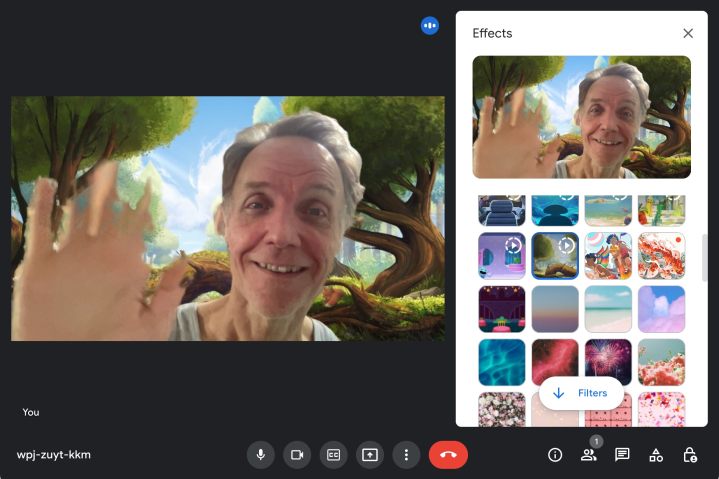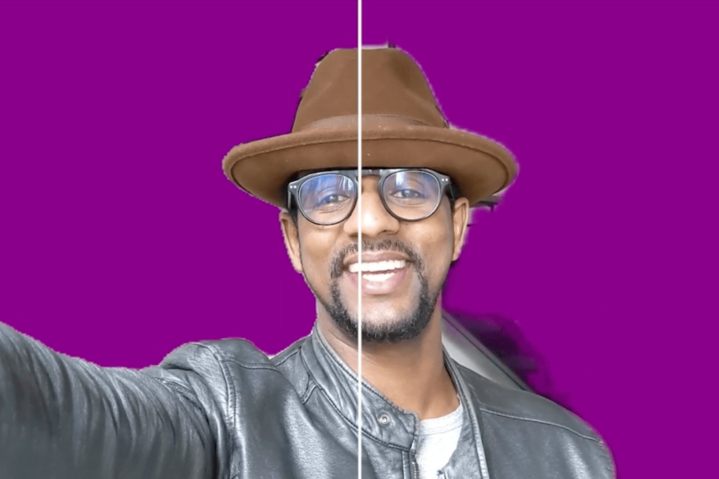If you’ve ever tried Google Meet’s visual effects, you already know that moving around can create glitches and gaps at the edges where the foreground object (you) meets the stylized background. The computer’s confusion about which part of a webcam image belongs in the front and which goes in the back is getting a huge upgrade with the latest Google Meet update.
The issue with the old version is that many computers lack the processing power to extract depth information from a webcam. That means Google Meet might not find the edges well enough to begin with, and it is often slow to update whenever you move. It’s not as noticeable when using a blur effect but can spoil the experience when you apply a stylized background. Nothing wrecks a peaceful nature background more than a pixelated hand with pieces missing when you wave.

Google’s solution to the problem is to use its hardware in the cloud to process the effect when the computer doesn’t have adequate performance. By taking the load off of your computer, Google found that using the new version of Google Meet can result in up to a 30-percent saving in CPU use, leading to longer battery life for laptops. These power savings happen even as the quality of the effect improves.

The great thing about the enhanced processing is that it happens automatically as needed. Google notes that cloud processing is prioritized for systems most in need of assistance, so computers powered by 4-core CPUs are most likely to benefit.
Google Meet video calls that use background blur or light adjustment on a low-power laptop are most likely to notice better background effects. Google will extend this improvement in depth effects to Google Meet’s stylized backgrounds in the future.



